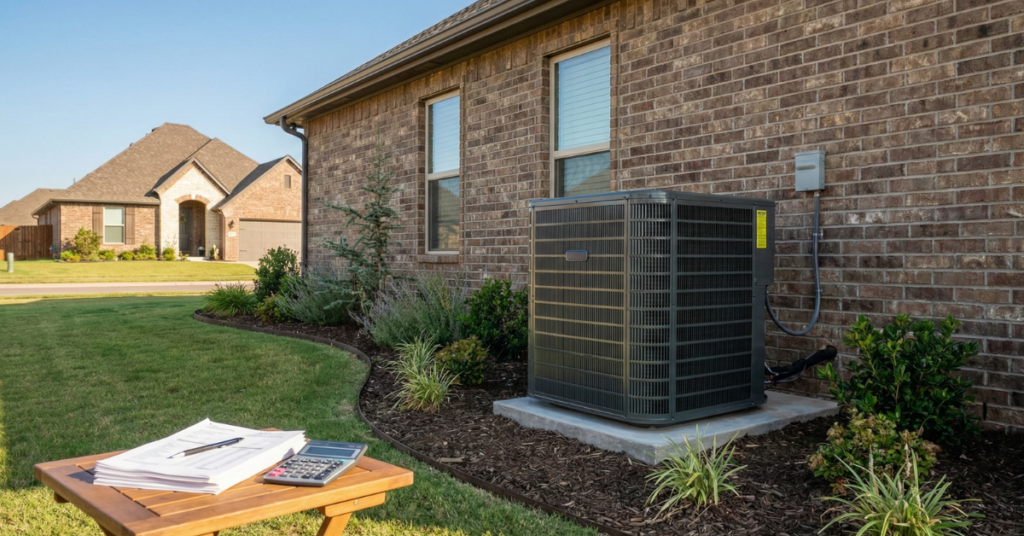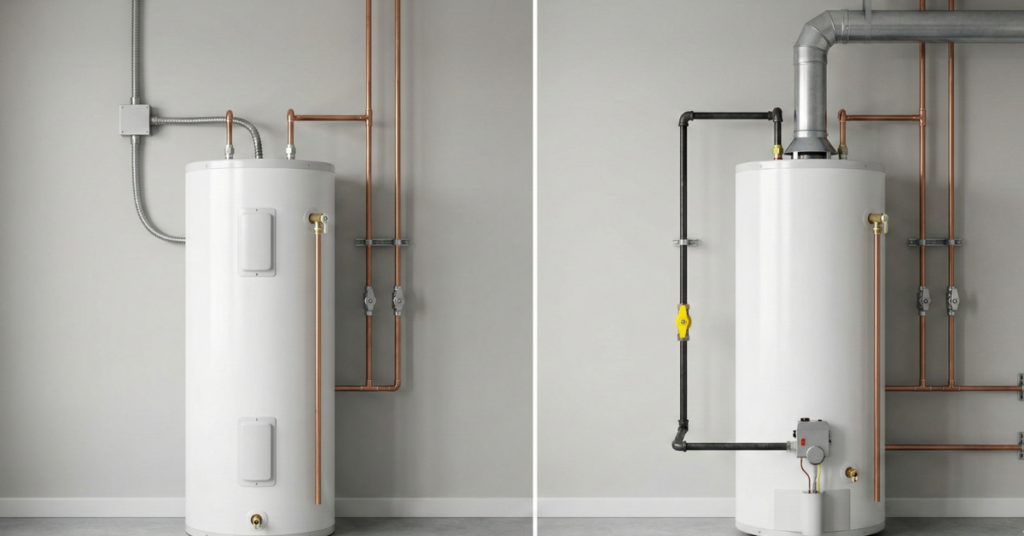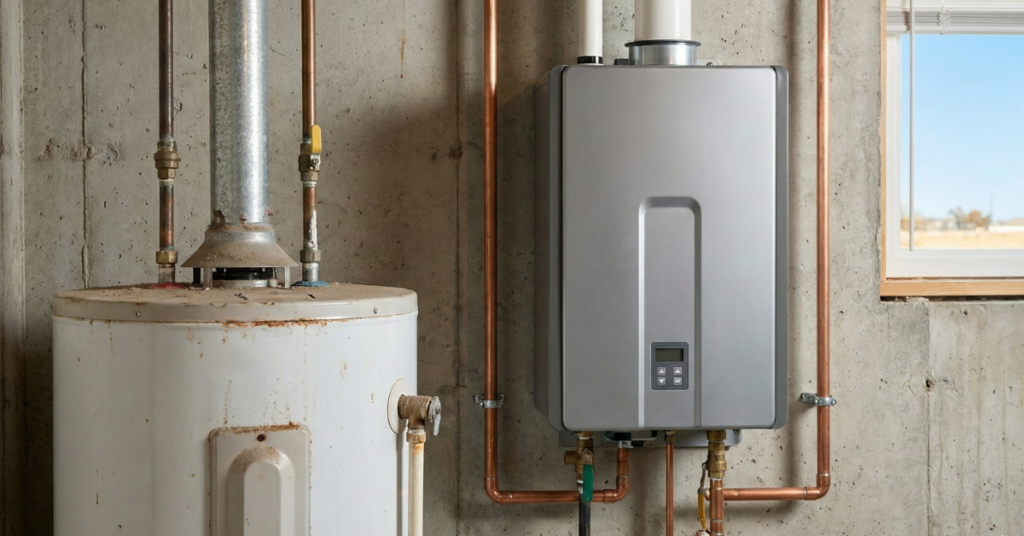Electric or Gas Furnace: Choosing the right furnace for your Oklahoma City home isn’t just about staying warm in winter it’s also about long-term comfort, energy efficiency, and cost control. Whether you’re planning a furnace installation or replacing an older unit, the decision often comes down to gas vs electric furnace options.
At AAdvantage Inc, we’ve spent decades helping homeowners and businesses choose the best heating system for their needs. From furnace cleaning, repair, and installation, we understand the demands of Oklahoma’s climate and the differences between gas furnace and electric furnace models.
In this guide, we’ll compare electric and gas furnaces, outline their pros and cons, and help you decide which furnace is right for your home.
Difference Between Electric and Gas Furnaces
Both electric furnaces and gas furnaces create heat for your home, but they work differently.
- Gas furnaces burn natural gas or propane, using a heat exchanger to warm air that’s pushed through your ductwork.
- Electric furnaces use electric heating elements to produce electric heat that’s circulated into living spaces.
| Feature | Electric Furnace | Gas Furnace |
| Energy Source | Uses electricity | Runs on natural gas or propane |
| Initial Cost | Lower purchase price | Higher upfront cost due to complexity |
| Installation Cost | No gas line or venting needed | Requires gas line and ventilation |
| Heating Speed | Slower to warm rooms | Fast, ideal for colder climate |
| Operating Cost | Higher where cost of electricity is steep | Lower in areas with affordable natural gas prices |
| Maintenance | Simple cleaning and inspection | More parts; needs regular maintenance |
| Lifespan | 20–30 years | 15–20 years |
| Efficiency | High efficiency of electric (nearly 100%) | 80–98% for high-efficiency furnaces |
| Safety | No carbon monoxide risk | Requires CO detection |
Pros and Cons of a Gas Furnace
Pros of Gas Furnaces
- Lower heating costs in areas where gas is often cheaper than electricity
- Heats quickly, ideal for colder Oklahoma winters
- Suitable for large homes needing consistent heat for your home
Cons of a Gas Furnace
- Gas furnace is typically more expensive to install, especially without access to a gas supply
- Requires CO monitoring and proper gas valve function
- Gas furnace requires more frequent inspections for safety

Pros and Cons of an Electric Furnace
Pros of Electric Furnaces
- Lower initial upfront cost for purchase and furnace installation
- Safer no burning natural gas or CO leak risks
- Electric furnaces are generally longer-lasting and require less repair
Cons of an Electric Furnace
- Higher energy bill in areas with higher cost of electricity
- Slower to heat in colder weather
- Some homes may require panel upgrades for electric systems
Energy Efficiency and Operating Costs
- Electric furnaces work at nearly 100% conversion efficiency, but costs associated with electric energy may outweigh savings.
- Gas furnaces produce heat quickly and cost less to run in areas with low natural gas prices.
- Always compare gas or electricity rates before deciding.
Maintenance Needs: Gas vs Electric Furnaces
- Gas furnaces also require burner checks, pilot light inspection, and CO testing.
- Electric units need cleaning, filter changes, and wiring checks.
- Regardless of type, furnaces require seasonal servicing to keep furnaces work at peak performance.
Climate Considerations
- In colder climates, gas furnaces tend to perform better during extreme cold.
- Electric heating uses resistance coils, which are reliable in milder winters.
- Dual-fuel furnace system options combine both electric and gas furnaces for flexibility.

Installation Process
Gas Furnace Installation
- Check gas supply availability
- Size unit properly for your home
- Complete venting and safety checks
Electric Furnace Installation
- Inspect electrical capacity
- Connect electric models safely
- Test performance after installation
Safety Considerations
- Gas models require regular maintenance to avoid carbon monoxide hazards.
- Electric ones avoid combustion but still need proper wiring safeguards.
When to Replace a Furnace
Consider replacing if:
- Your furnace turns on and off irregularly
- Energy bills rise despite maintenance
- Frequent repair needs occur
- Furnace may be older than its expected lifespan
Which Furnace Is Right for You?
Deciding between a gas or electric model depends on:
- Heating and cooling needs
- Fuel availability and comparing gas vs electric heating elements
- Budget for installation and operation
- Whether a gas furnace a good fit for your home or an electric furnace is one

Get Professional Advice
Whether you’re choosing a gas or electric unit, replacing natural gas furnaces, or scheduling repair, AAdvantage Inc can help. Our licensed HVAC team offers expert furnace installation, repair, and maintenance for all types of furnaces including oil furnaces, gas appliances, and electric models.




